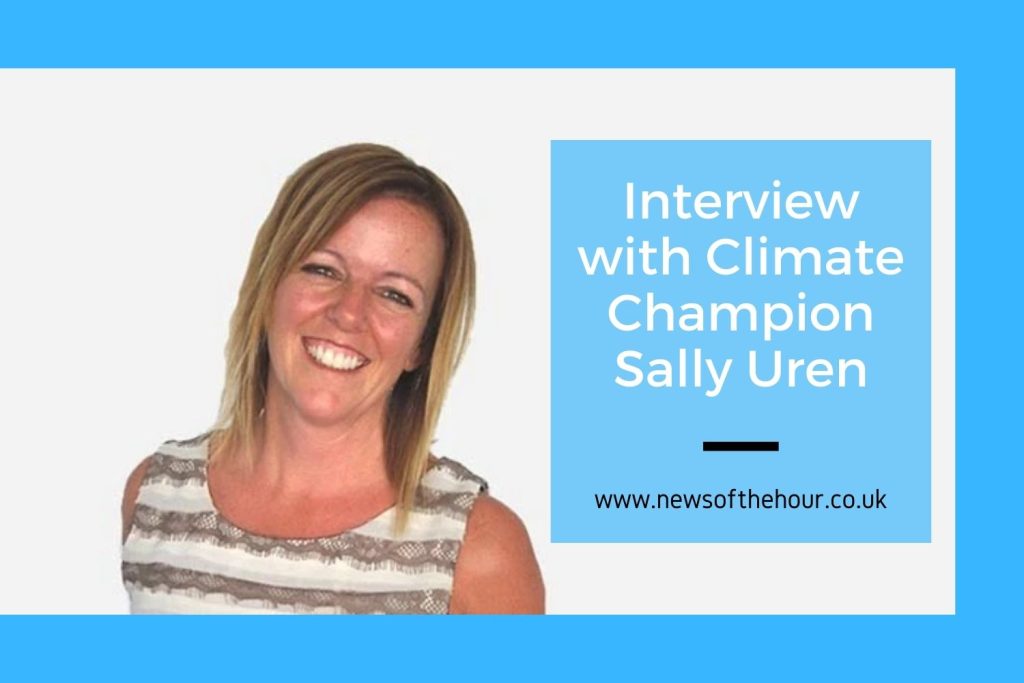Interview with Climate Champion Sally Uren: An Analysis for Businesses on their Sustainability Journey

Table of Contents
Courtesy of The Sustainability Speakers Agency, we at News of the Hour sat down with Sally Uren in this exclusive interview to discover whether businesses are doing enough to tackle climate change.
Sally also revealed the highlight of her career, and the first thing businesses must do when embarking on their sustainability journey.
An exciting interview with a true climate champion, do not miss this exclusive Q&A with Dr. Sally Uren OBE!
Do you believe leading businesses and brands are doing enough to combat climate issues? If not, why not?
“No, they’re not. Nobody is.
“Why not? Partly because of the economic constraints that we’re in, and the economy that is fuelled to a large extent by short-term profit maximisation. And so, whilst there is a really strong business case for sustainability, you may need upfront investment in, for example, solar panels or other renewable types of energy. You may need to enter long-term contracts with your supplier and actually commit more resources upfront as a way of building resilience into your supply chain.
“If you are having to meet really short term demands on profitability, then the longer-term investment becomes harder even though you can show the rate of return. So, one of the biggest barriers is this kind of drive for short-term profit maximisation.
“So, that’s definitely one barrier, the way that capital markets work. And then I think there’s another barrier which is much more human, which is, I just don’t think we’re ambitious enough. I think we’re just a bit too comfortable – we’ll just tweak things here, tweak things there.
“I think another barrier is what we would call ‘mindset’. So, there’s a lack of ambition and a lack of creativity. If we can be bold and ambitious, then I think you’ll see an acceleration.”
Many stakeholders believe that going sustainable costs more, what would you say to them to convince them to actually implement sustainable practices?
“Just do a long-term cost reward calculation…
“We used to worry that the price of renewable energy was too much higher than the price of fossil fuel. It’s actually now cheaper. Those organisations that did a long-term pricing analysis, they’re doing really well right now because they’ve got access to the energy that they need. They’ve got into long-term contracts. Actually, the price of renewables will go up as a result.
“I think it’s really important to not just focus on the short term, but to imagine your business five years from now, 10 years from now – where and how will you be sourcing your energy? Who will be your customers? What will you be selling? Because it won’t be what you’re doing today!
“The business case is really strong today – cut carbon, you save money; cut waste, you save money; cut water, you save money. You build brand trust, building strong customer loyalty programs. If you don’t act now, the chances are that as a business, you’re being uncompetitive and maybe out of business in five years from now.”
Where should businesses begin when embarking on a journey to become more sustainable?
“The first thing I would do is – it sounds really boring, and it is a bit – but to do a materiality assessment, really understand, where are your big impact areas? Where can you make the biggest positive difference?
“Just take the time to do that properly. Don’t assume where your impact lies, because actually, you might not have that right. So just take the time to do a proper materiality assessment, find out where your biggest impact areas are, and how to really optimise the contribution that you make to the world around you.”
What has been the highlight of your career so far?
“I think it’s probably playing a role, a small role, in bringing the conversation around sustainability from the edges. So, when I started, nobody was interested. I used to talk to people and oftentimes I wouldn’t even be given a chair, because the expectation was, I wasn’t going to be staying very long!
“So, I think bringing that conversation from the edges into the boardroom, I am quite proud of the role I played in that.
“Probably more recently, I’m really proud that Forum for the Future has played a role in creating the understanding that we need transformational change, we need systematic change. And I think we’ve bought that notion from the kind of dusty edges of academia into business. I’m pretty proud of that.”
This exclusive interview with Sally Uren was conducted by Jack Hayes and if you’d like to read more about sustainability then check out our green home grants guide.





